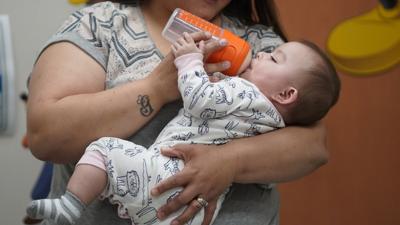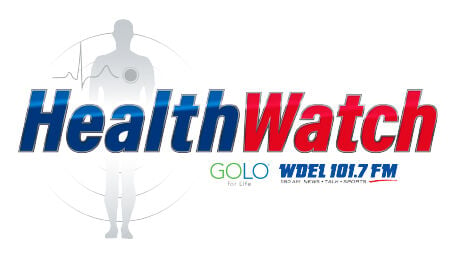Facing a nationwide infant formula shortage, the Delaware Department of Health and Social Services Division of Public Health on Tuesday instructed families on a few things they could do and some things they definitely shouldn't to try and weather the shortage.
The directives come from the U.S. Department of Health and Human Services and include things to do like talk to a doctor about best options for meeting babies' medical and nutritional needs. But the also stressed several things parents should absolutely not do.
"This is a really serious crisis," said Helen Arthur, Section Chief for Health Promotion and Disease Prevention at the DPH. "We've been working to get this word out, because it's extremely important...to not make homemade formula. Per the Academy of Pediatrics and Food and Drug Administration, homemade formulas often lack or have inadequate amounts of critical nutrients vital for a baby's growth. So we really are stressing that point."
In addition to the dangers of homebrew solutions which may not meet the standards necessary for infant care, Arthur also stressed avoiding a similar course of action which can seem innocent enough, and perhaps even seem like a positive solution to stretch out a supply, but one which can have deadly consequences.
"We are also really stressing the point to never dilute formula" she said. "Watering down infant formula can be dangerous, and even life-threatening, leading to serious nutritional deficits and health issues for that baby long-term. So those are two things that we really, really want to stress not to do at home."
Diluting formula to try and make it last can lead to nutritional issues like hospitalization over calcium deficiency to more serious issues including kidney disorders and seizures, Arthur said.
Instead talking to trusted medical professionals like the infant's pediatrician would be the best route for handling any scenario where access to a formula supply is uncertain. It also helps to check a doctor regarding formula replacements and substitutes. One other solution, which Arthur noted she understands is not for everyone, is to encourage breastfeeding.
"DPH does encourage breastfeeding when it is appropriate and when it is able to be done," Arthur said. "If you are a mother that is combining breastfeeding and infant formula, then breastfeeding, pumping, and expressing milk more often can actually increase milk supply. So that can reduce the need for infant formula. That's another thing that we've actually been trying to talk to a lot of people about, but it's not for everyone, and we understand that. But those that are doing that and have that dual process in place, we just wanted to also share that with them."
In the meantime, the DPH is urging anyone, but especially members of their Special Supplemental Nutrition Program for Women, Infant and Children (WIC), to find a location to donate their leftover and unused portions of formula.
"Donate any unopened and unused formula to the Food Bank of Delaware. That is the drop point for for WIC clients," Arthur said. "For non-WIC clients and family members, they can actually donate to the Food Bank of Delaware, or they can also take their unused and unopened products to the Donate Delaware site. That is something that we're working on in concert with our Office of the Governor."












